What a journey, what a trip. I don't have a lot of time to refine and edit, so you're getting this one raw. I'll haphazardly pepper in some images.
I had a conversation with one of my new Ukrainian friends about how the idea of something frightening becomes less frightening the closer you get to that thing. It's counterintuitive, but I will try to explain.
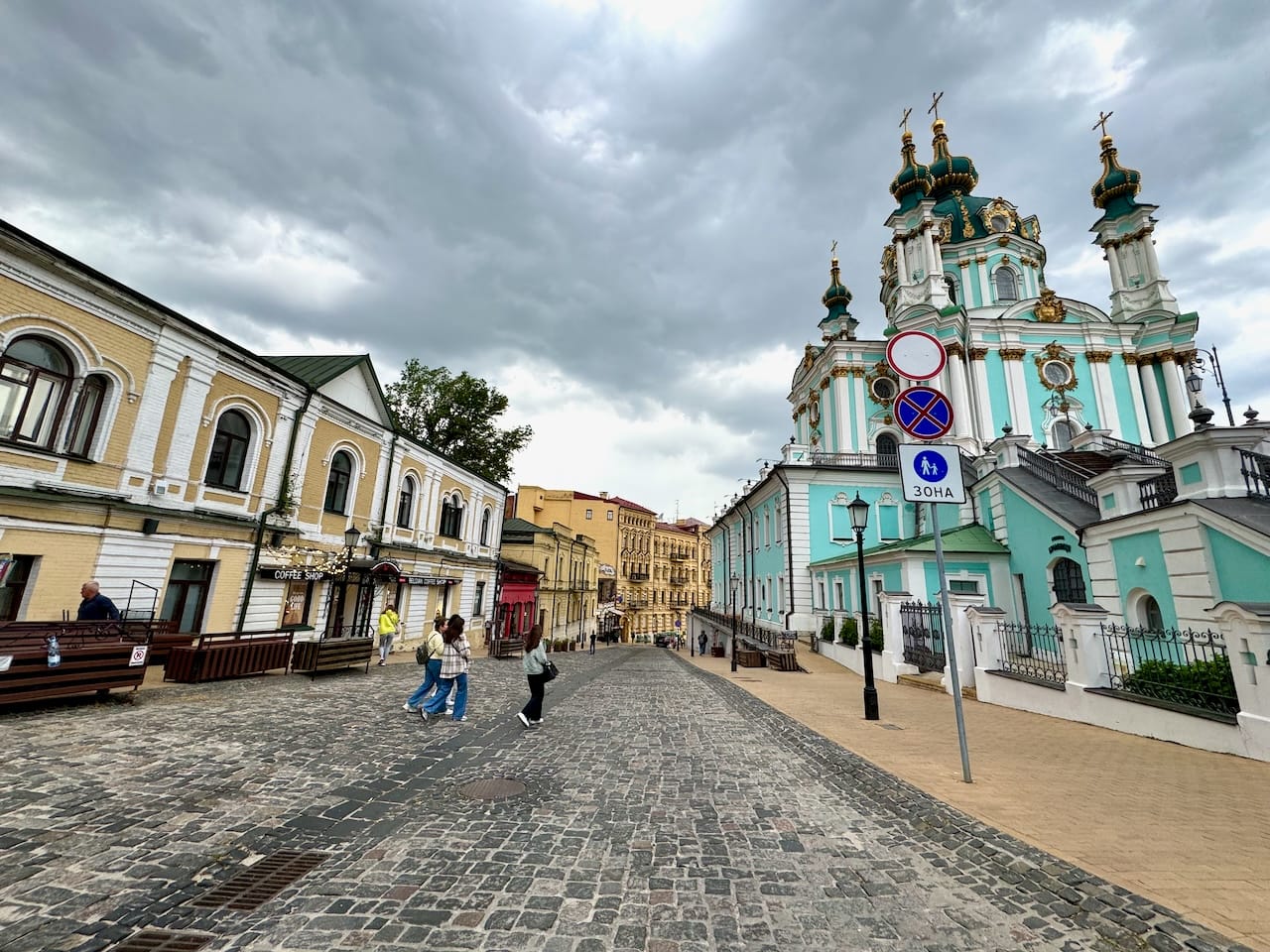
There's a thing in sound engineering called the proximity effect. It has something to do with the frequency of sound changing the further you are from the source. It's why the sound of a motorcycle speeding past seems to change as it speeds by (imitate the sound with your mouth and you'll reproduce the proximity effect).
I've learned that fear has a proximity effect.
Take traveling to a country at war for instance. This is a scary idea from afar, because our mind fills with scary images, potential consequences, projected in technicolor onto the walls of our mind.
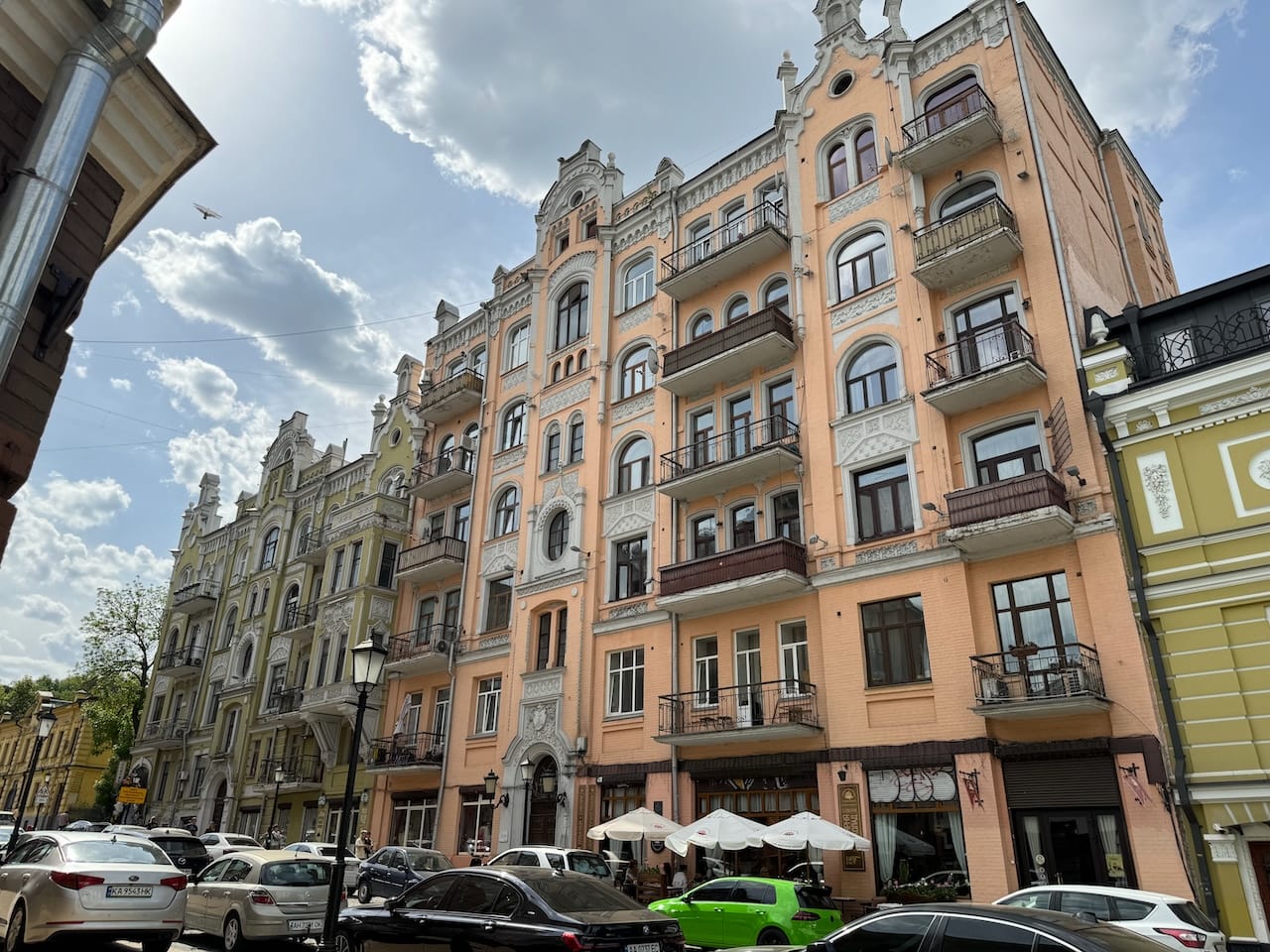
Now zoom into the reality, sitting in a train car crossing the Tisza River from Hungary to Ukraine, and you see that it's an eerie experience but not at all frightening. Being in a carriage full of chatting, laughing women (it's much more difficult for men to leave Ukraine so the train passengers are mostly women) discharges any fear of crossing the border into a country at war.
And let me interrupt myself to say this is not an argument against concern. When someone you love travels into a conflict zone, whether as a documentary filmmaker or as a soldier, it's natural and sane to be concerned. You'd be crazy to not worry. This is just a contemplation about the experience because when you tell those same people that it's not all that scary, you're likely to compound their concern. They worry that you're being complacent, downplaying the risks.

But that's not it. The proximity effect of risk is just playing out. What is scary from afar, is not scary up close. And when you tighten that locus of risk, the dynamic holds up. Take, for instance, being inside the boundary of a regional air raid alert.
There's an air raid alert app that everyone has on their phones and it sends out a jarring alert sound, followed by the voice of Mark Hamill, aka Luke Skywalker, warning you when your region is at risk of drone, missile, or aircraft attack.

I downloaded the app three weeks before my trip so I could acclimate to the process of waking up in the middle of the night and assessing the risk. Think of the air raid alert as a general notice, a blanket warning that covers an entire region, sometimes the whole country if the weapon is a fighter jet taking off from a base inside the Russian Federation, because that jet could reach anywhere within the national border. At the other end of the spectrum, drones have a limited range and will only trigger local warnings.
In order to assess what’s going on, there are distribution channels on Telegram (messaging app), so as soon as an alert goes off you grab your phone, open Telegram and wait for the message about the precise nature of the threat. They come quickly, sometimes in advance, and the information is very precise.
Is it a MIG? Is it a ballistic missile? Is it a formation of drones?
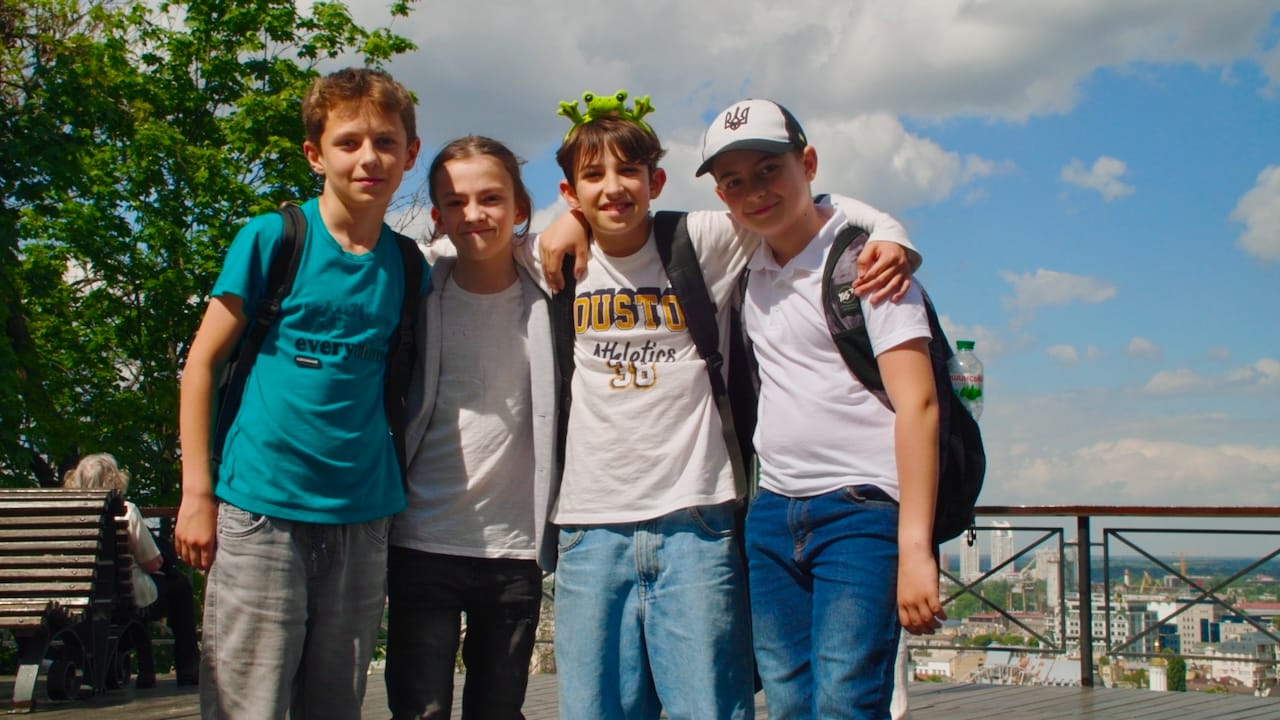
All of those things are scary from afar. But as you assess the situation, it's not all that frightening. You have something to do in that moment and your focus is on next steps, the task at hand.
The system also has an "increased threat alert," sort of a second stage alert, if the risk in your area becomes more acute. If you hear that, it's a good time to get into a corridor, separate yourself from the incoming trajectory by two interior walls, or dash to a shelter.
That alert triggers your adrenaline, and you take action. Once you're in a safe place, then fear has a chance to creep in. I've only been in that situation for a few minutes, and although I still knew the risk was very low, I suddenly had nothing else to do, so my fear brain kicked in.
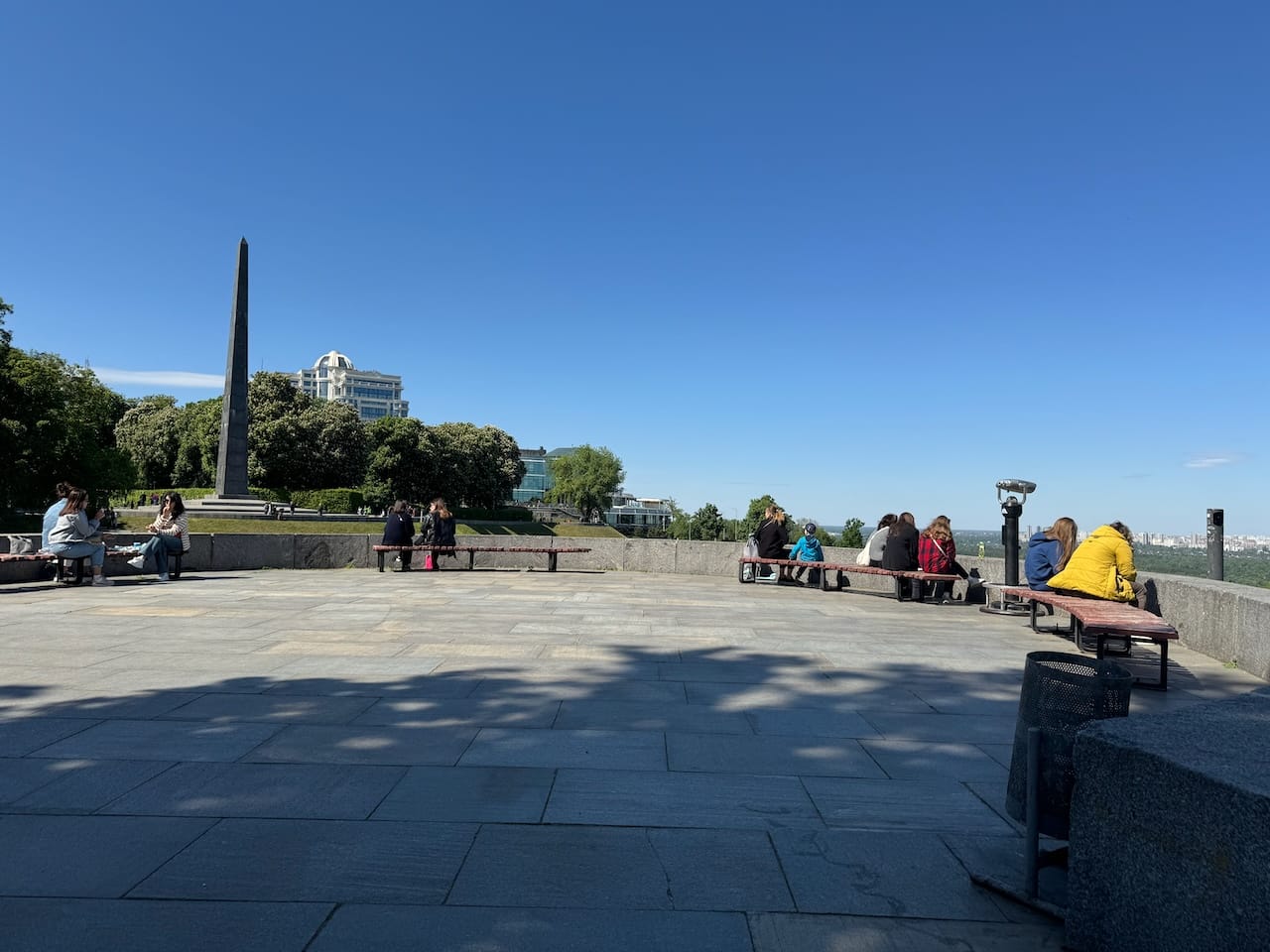
Kyiv has a very robust air defense system and people who live here trust it. They take precautions, but they know that the air defense will intercept almost everything.
None of this is to say that fear just evaporates. If I opened the app and saw that a barrage of missiles was headed to Kyiv, targeting religious infrastructure, well, that would spark fear because my place is in the midst of many such landmarks. In that case, I would double time it to the shelter across the street.
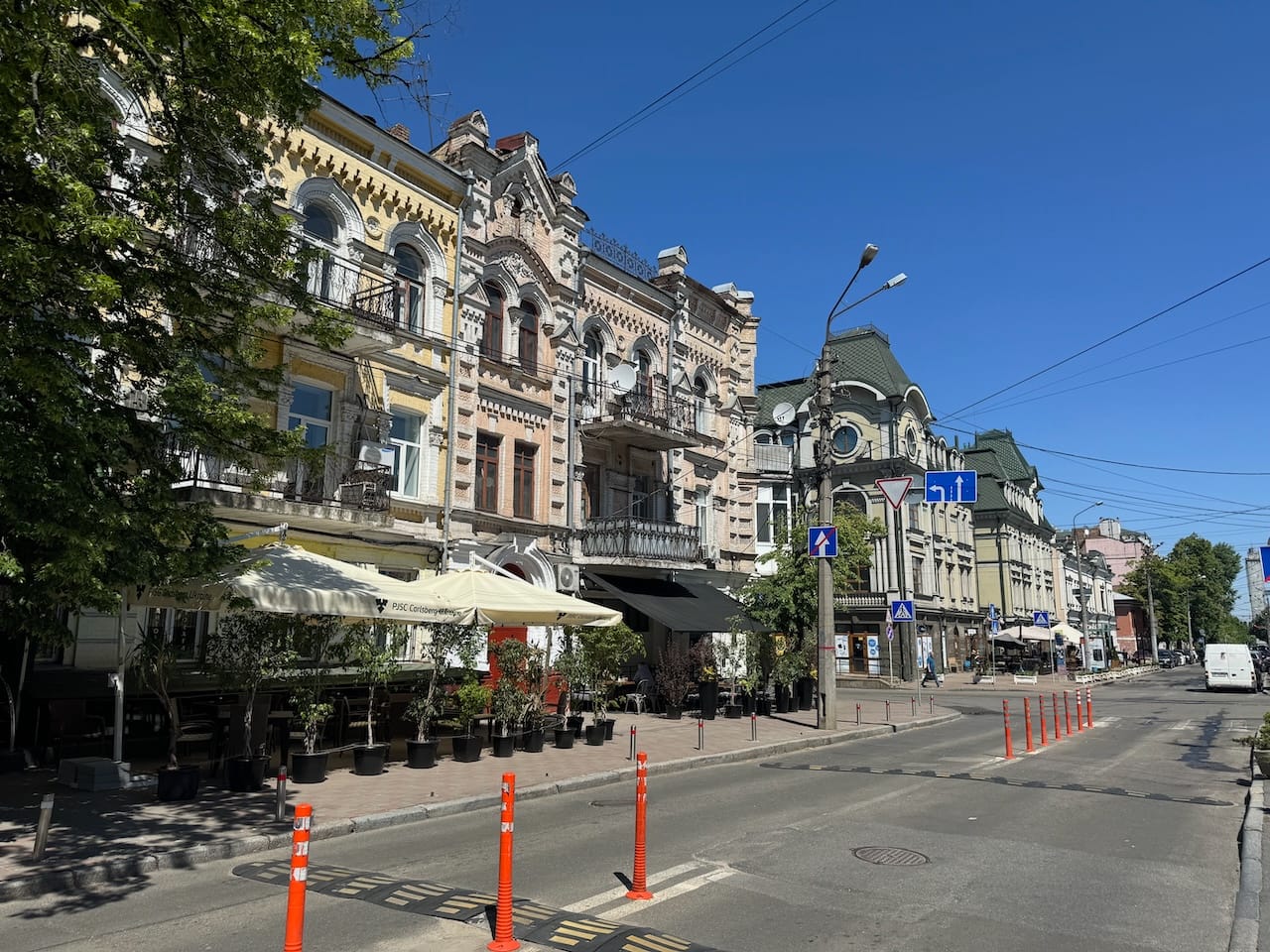
But the attack a few days ago was on energy infrastructure, so I knew that the chance of any impact in my area was extremely slim. When the increased threat alert sounded, I walked to the shelter across the street from my flat. It was five o'clock in the morning, dawn was breaking, and I was the only one outside. I didn't see another soul on the street or in a car. I checked the door to the shelter and it was open, but there was no one inside. So I waited for a few minutes, then turned around and went home.
It's not complacency, it's risk management and for Ukrainians, the choice to not live by Russian design. Imagining this way of life from far, far away, it's simply scary. The thought that someone you love has chosen to put themselves in harm's way or even within the circumference of an air raid app can be confounding.
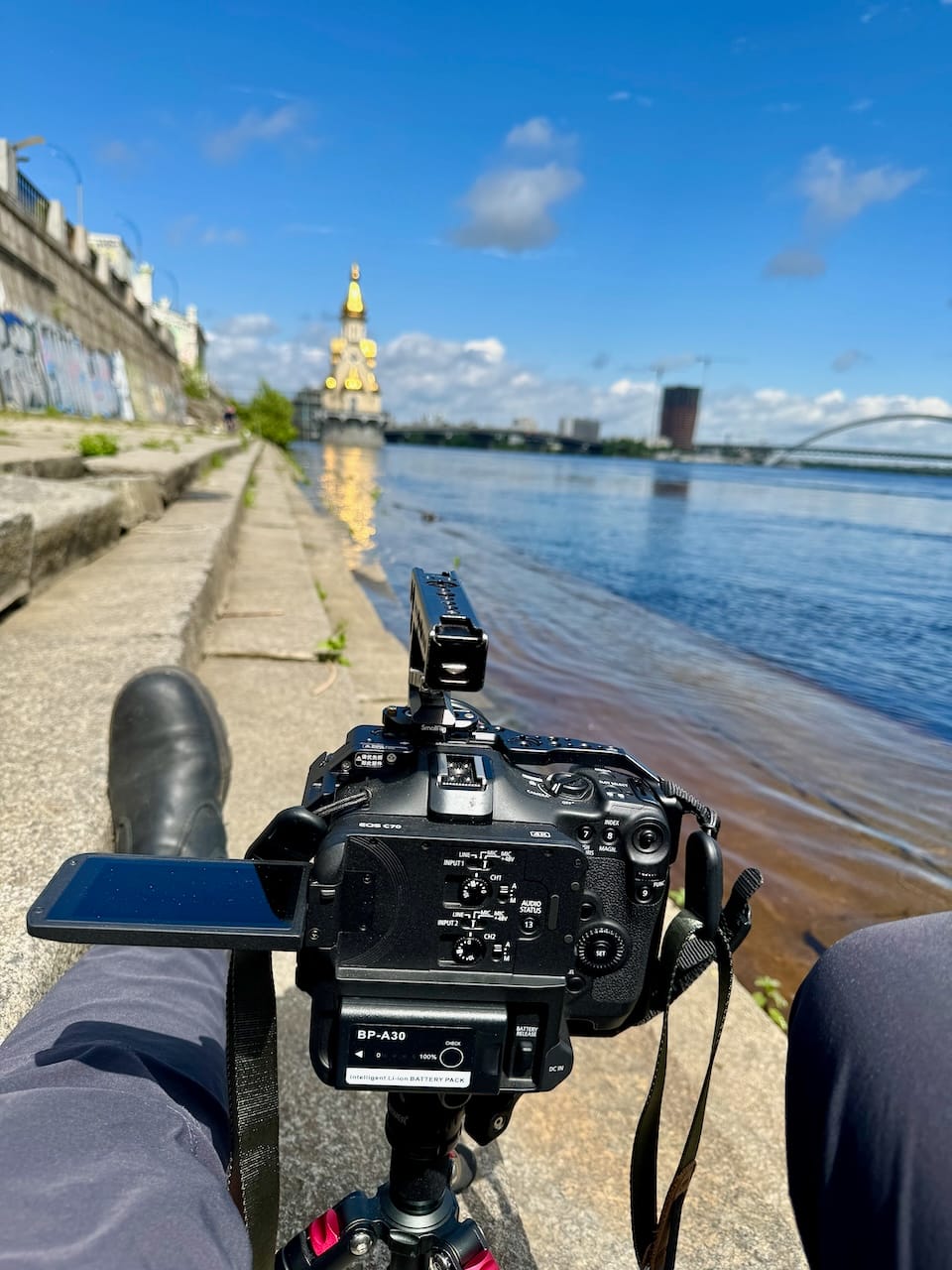
But to be here, it's only scary in little moments. It's so easy to assess the actual risk, and so fear is fleeting.
Otherwise, it's beautiful. It's a joy. And seeing how people go about life as usual, in active defiance, is heartening. It's inspiring. And it reminds me that it's sad that we have to fight. And it's sad that in places with less conflict, we still choose to fight with pointed words, with keyboards, with blunt sticks and blades and bullets. It's confounding that we haven't figured out a better way, after all these years, all of the history, and with all of the blessed technology.
Still we fight.
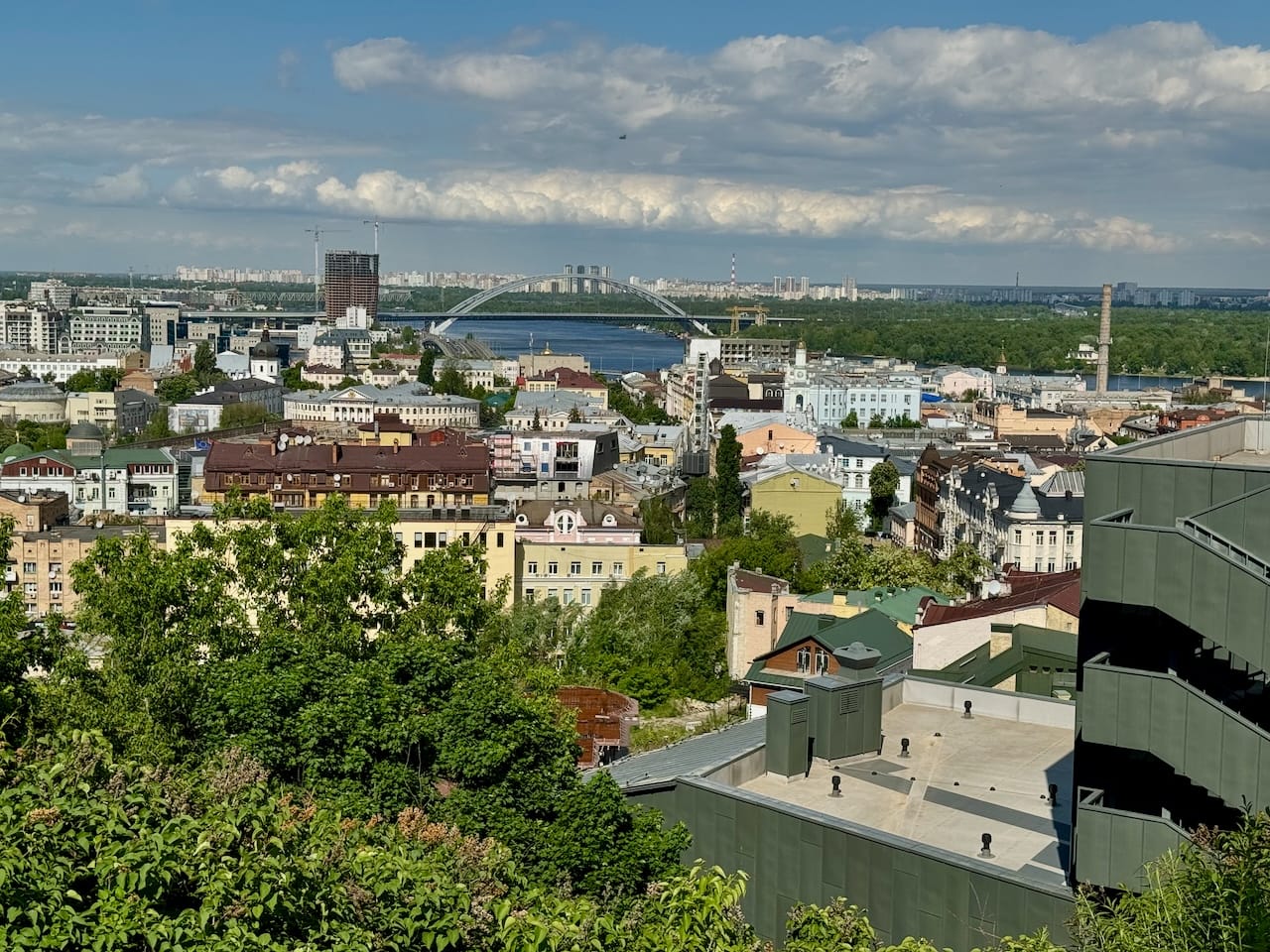
There is fear aplenty here. Everyone knows someone on the frontlines and they fear for their loved one's well-being throughout the day and night, regardless of what their loved one is experiencing at any given moment (that fear, too, is subject to the proximity effect).
People living in Kharkiv are getting pummeled and so fear lingers. But one of my hosts told me about their friend in Kharkiv who's going about their life in spite of it. Recently an apartment building next to hers was hit by a missile, but she stays.
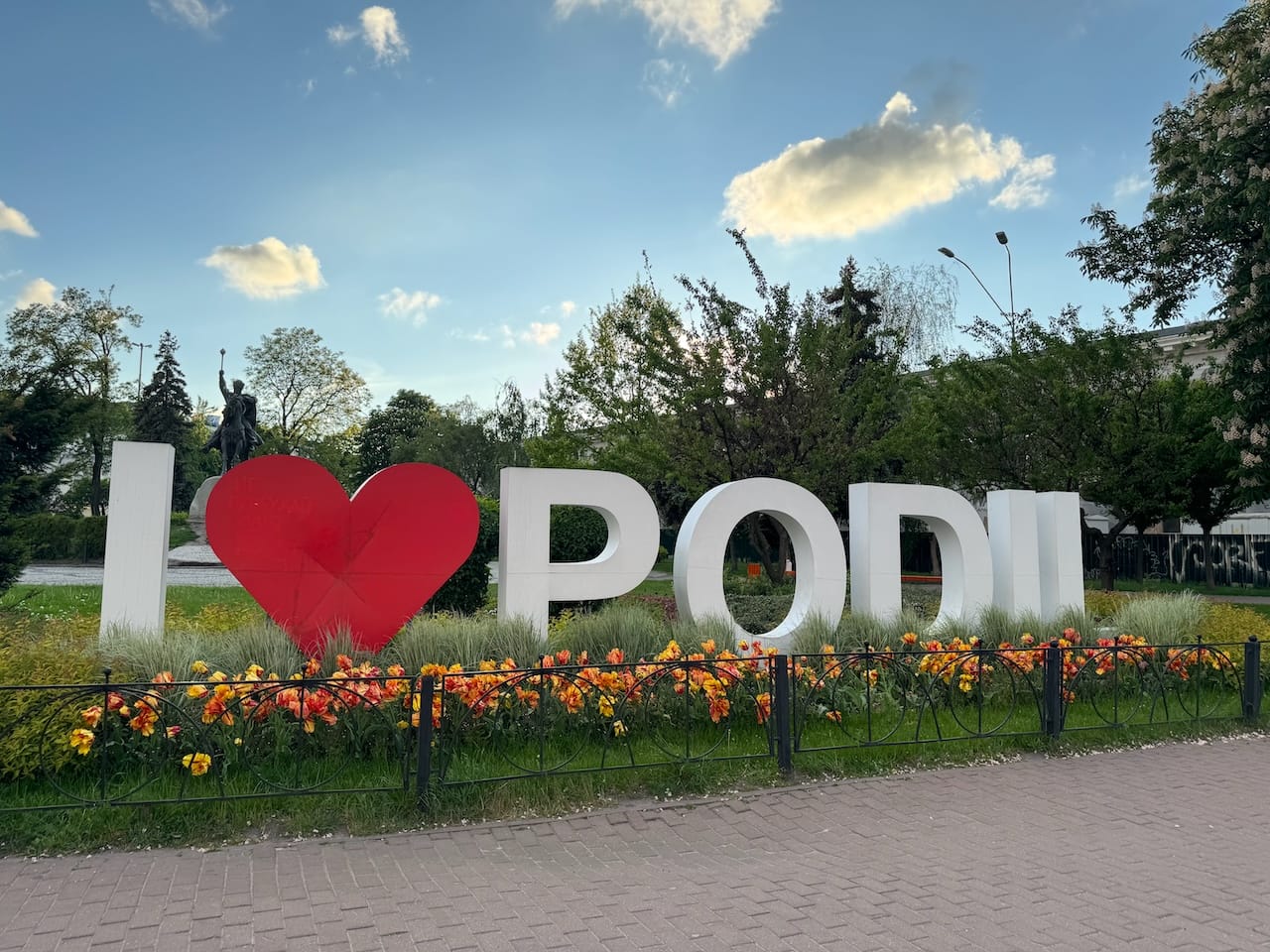
Foraging is an important cultural pastime here. People have a strong connection to the forest. But the forests in the East have been mined. A documentarian I spoke with was filming with a land mind removal team and he met a man foraging on a prosthetic leg and he asked him how he was injured. "Like this," the man said, "foraging."
It's hard to imagine ever walking in that forest again, but for that man, clearly, it was harder to imagine not walking in that forest again. He would be damned if he was going to let the Russians take that away from him.

So yes, there is fear and there is no fear. And often the difference between the two is a choice. I haven't figured it all out yet, but the perspective is powerful. Being here is powerful. And the Ukrainian people are so powerful.
The reality of an alert...
About 20 minutes after I wrote that, the air raid alert went off, so I clipped on a microphone. You can hear the experience here, if you like. It's real time, unedited, but it takes you through the experience. (A little dead air, 6 minutes in as I make an appointment)... If you're especially affected by my fluctuating personal safety, maybe don't listen, because it sounds like I should be sprinting for the shelter immediately, but clearly, I don't... because that's not how the threat response works in real time...
In any case,
I love you all,
Chip

